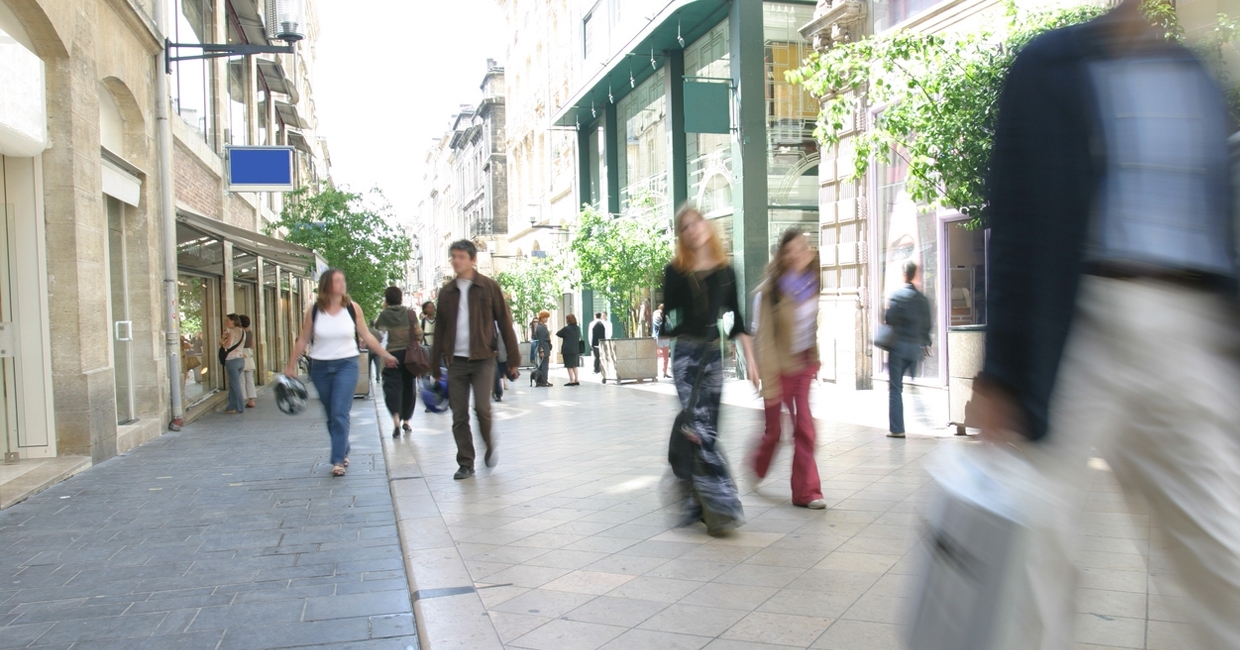New national restrictions have been announced in a move to slow the rate of coronavirus infection, with the closure of all 'non-essential' shops in England for the four-week period from Thursday 5th November to Wednesday 2nd December.
Government guidance currently states that "food shops, supermarkets, garden centres and certain other retailers providing essential goods and services can remain open … non-essential retail can remain open for delivery to customers and click-and-collect … a full list of the business closures will be published and set out in law". It is not yet clear whether 'furniture' falls on the list of non-essential categories.
Whichever category it falls within, unlike the spring lockdown, there appears to be more freedom to operate this time, given the points made around collection and delivery.
Furniture retailers will be hoping for greater clarity than they had in the first lockdown, when the use of the term ‘homewares’ within the list of businesses permitted to remain open sowed confusion, with some interpreting the statement in their favour – only for the Prime Minister to later mention furniture as one of the ‘non-essential’ retail types that only would be permitted to open mid-June.
An update to the Government guidelines is expected before Thursday.
Responding to the Prime Minister’s announcement, Helen Dickinson, chief executive of the British Retail Consortium (BRC), said: “Retail faces a nightmare before Christmas as the Government proposes to close thousands of retail premises under this new national lockdown, denying customers access to many of their favourites shops and brands. It will cause untold damage to the high street in the run-up to Christmas, cost countless jobs, and permanently set back the recovery of the wider economy, with only a minimal effect on the transmission of the virus.
“A recent Sage paper reported that closing ‘non-essential’ retail would have minimal impact on the transmission of Covid. This is thanks to the hundreds of millions of pounds retailers have spent making their stores Covid-secure and safe for customers and colleagues.
“The announced closure will have a significant economic impact on the viability of thousands of shops and hundreds of thousands of jobs across the country. The previous lockdown cost ‘non-essential’ shops £1.6b a week in lost sales – now that we are entering the all-important Christmas shopping period, these losses are certain to be much bigger.
“We have no doubt that retailers will comply with the rules and play their part to ensure the British public can remain safe and have access to the goods they need. Nonetheless, Government must also play its part, providing support to businesses that will be forced to close, otherwise the consequences for local retail will be dire.”
Springboard has revised its footfall forecasts for the six weeks from 22nd November to 26th December, and now predicts that footfall across all UK retail destinations will be -62.0% – a drastic change from the original forecast of -32.7%.
The retail intelligence company believes that between 5th November and 2nd December footfall across England is set to average -78.8%, with high streets hit hardest with a decline of -87.3%. It warns that if the national lockdown is extended throughout December, footfall could drop by more than -80% - the magnitude of decline at the height of the pandemic in April.
Traditionally, Springboard data from 2017-19 highlights that retailers begin to experience an uplift in footfall from Christmas shopping in the first week of November, rising on average by +3% per week. However, it recognises that the greatest uplift in footfall is usually seen in December, with an average rise of +11.4% in week 51 of the year, the last week of trading before Christmas, therefore it is essential for non-essential retailers to be open and trading by this date.
Prior to the lockdown announcement, a survey of 1000 shoppers nationally identified that 61.2% of consumers intended to spend more online, while only 20.4% look to spend more at bricks-and-mortar stores. The latest lockdown restrictions will now see online shopping as the only option for consumers throughout the month of November.
Springboard also found that 63.5% intend to spend less on Christmas this year than last year. This year, Christmas Day falls on a Friday and Boxing Day on a Saturday. The long-term trend is for footfall on Boxing Day to decline each year due to the growth in online spending and shift towards leisure based rather than shopping focused trips on this day. This year, due to the Rule of 6 which limits the size of social gatherings and the growth in online spending, Springboard forecasts that decline will be proportionately greater as it is likely that the weekend of Boxing Day (Saturday) and 27th December (Sunday) will be used by many families to meet with those they were not able to see on Christmas Day. The fact that a third of shoppers intend to spend more on food and groceries this year reflects this.
Post Boxing Day, says Springboard, footfall is likely to bounce back as it will be the first opportunity for many shoppers to head out to stores after spending time with their families. This will lead to a marginal improvement in footfall in the week beginning Sunday 27th December, with a decline of -42.3% across all retail destinations from -62% over the five weeks to 26th December. Footfall in high streets will strengthen to -52.2% (from -70.3%) to -41.7% in shopping centres (from -63.3%) and to -21.7% in retail parks (from -42.8%).
Diane Wehrle, insights director at Springboard, comments: “The national lockdown restrictions will now see our struggling retailers miss out on the start of essential weeks of Christmas trading, including Black Friday weekend, as non-essential retail remains closed until 2nd December at the very earliest. Although restrictions may ease in December, this is by no means guaranteed as the second wave of Covid-19 ripples throughout the UK. Most consumers are likely to have completed a vast amount of shopping online in advance and may well have fears of returning to bricks-and-mortar stores, however retailers need to be given the opportunity to re-open ahead of Christmas.”










